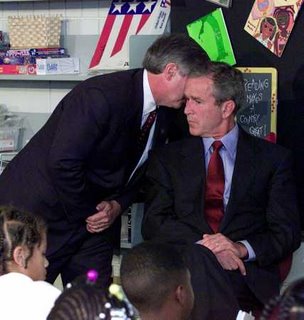Shocking survey in GB, Israel, Canada and Mexico (sondaggio shock)

London, November 3rd 2006
(from "La Repubblica": http://www.repubblica.it/2006/11/sezioni/esteri/sondaggio-bush/sondaggio-bush/sondaggio-bush.html)
Survey shock in 4 pro-USA Countries. For 69% of the British, the Americans from 2001 have rendered the world less sure. Who could be more dangerous of Ahmadinejad, the Iranian president and Kim Jong, the North Korean president? - Who is the "Public Enemy # 1"?
The answer is simple: George W. Bush. The president of the United States would be more dangerous of the leaders of the states inserted in the famous ' axis of evil': the Iranian Mahmoud Ahmadinejad and the North Korean Kim Jong.
Bush is second only to Osama bin Laden.
The list of the most harmful personages for the world-wide peace, has been realized thanks to a survey commissioned jointly bythe daily paper "Guardian" in Great Britain, "Haaretz" in Israel, "Pressed" and "Toronto Star" in Canada and the "Reforma" in Mexico.
The result of the survey confirms, just a few days before the ballot of the midterm elections for the renewal of the United Staes Congress and Senate, what everybody already knew for a long time but never reported in figures: the foreign countries don't like and are worried for the "cowboy" foreigh politic of G.W. Bush.
The point is that the survey has been limited, for the moment, only to those countries, like Great Britain, who are in front line in Afghanistan, Iraq and other issues.
Only the 7% of the people interviewed in Great Britain, believe that the wars improved the total emergency while the 69% of the hundreds interviewed say that the American foreign policy since 2001 brought us to a less secure world. Conviction shared also by the public opinion in the countries adjacent to the north and the south of the United States (62% of the Canadians 57% of the Mexicans.
But the most clamorous thing is that also in Israel, always been the main bastion for the United States emergencies, is diminishing the number of the supporters of Bush politics. Only the 25% believe that these interventions aid the emergency, while the 36% thinks that it damages it and the 30% considers that the Bush policies made no difference at all.
